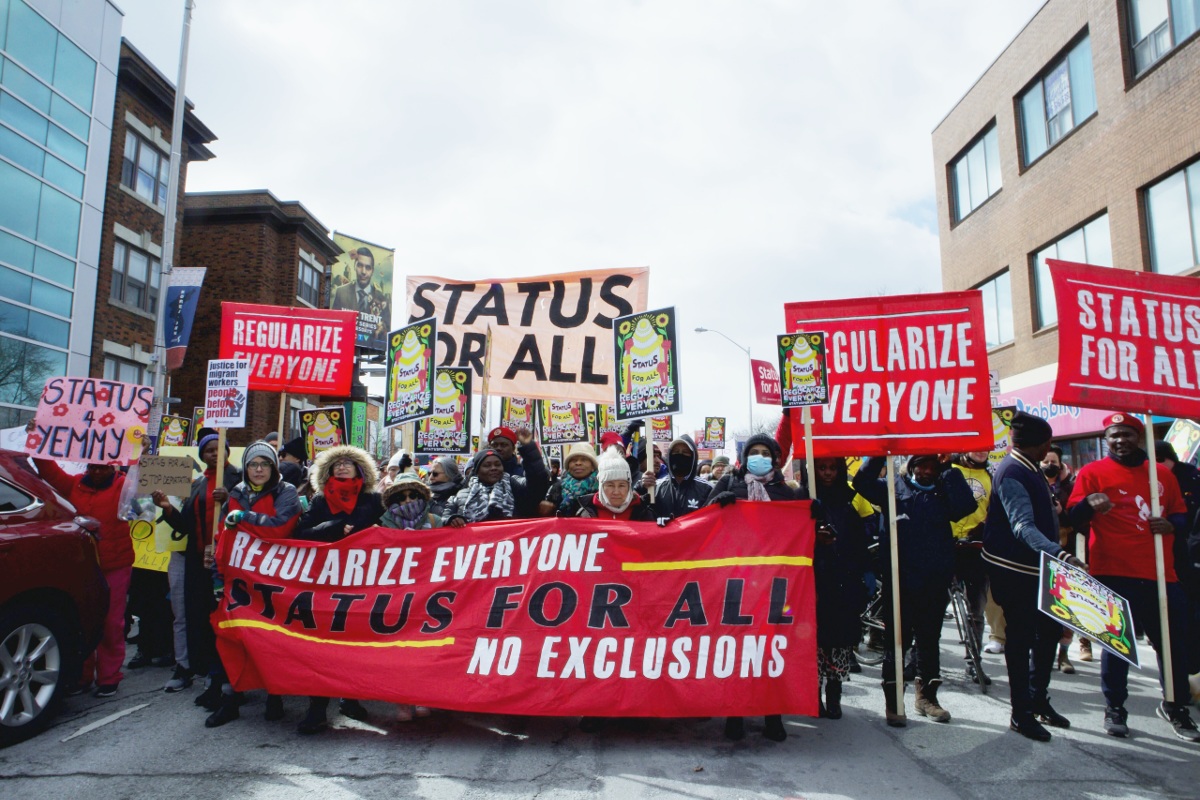
TEAM
Eriselda Shkopi
START YEAR 2022
END YEAR 2025
The overall objective of this research project is to provide new insights on the theorization of political subjectivities and citizenship, in order to foster public debates on the role that social sciences, policymakers and citizens and non-citizens alike have in shaping what citizenship is in the 21st century’s ‘inclusive’ Europe as well as on the other side of the Atlantic – Canada. To reach this goal Mig.pro aims to explore migrant agricultural workers’ (MAWs) and their allies’ networks, agency, and grassroots struggles to be granted fundamental human rights, and decent living and working conditions, by looking at everyday forms of protest, resistance and mobilisation in two different contexts: Canada and Italy. Particular attention will be paid to migrant women agricultural workers, who often face intersecting forms of exploitation that even though do not silent their agency and everyday resistance.
Existing international research shows an historical global trend in super-exploitative practices for MAWs. Yet while structural and systemic living, working condition and super- exploitation has gained attention in academic research over the past decades, the voice, agency and protests activated by MAWs as well as by MAWs’ supporters remains under considered. During his visit in Canada in 2023, the Special Rapporteur on contemporary forms of slavery declared ‘Canada’s temporary foreign worker programmes are a breeding ground for contemporary forms of slavery’.
To a similar conclusion arrived, the Special Rapporteur on contemporary forms of slavery, during her visit to in 2018 in Italy when she stressed: ‘Labour exploitation is particularly prevalent in the agricultural sector. Of the approximately 1.3 million agricultural workers, some 405,000 are migrants with either a regular or irregular migration status’. Moreover, the consequences of COVID-19 even if have been pronounced among status-precarious migrants worldwide, exacerbated racial inequalities, isolation, surveillance and health risks in Canada and Italy similarly.
However, across both countries, MWAs, multiple grass roots movements and networks have mobilized, in multiple forms, since the last 20 years and more to denounce the human rights violation of this part of the population and to foster change in policies and practices. Amplifying the resonance of resistance strategies is the crosscutting theme central to the study that brings also to ask: What one context may learn from the other in terms of grassroots movements for affirming fundamental rights? Are there similarities, differences and if yes what are the underneath processes?
In order to grasp specificities and complexities methodology has been adapted to each context. A triangulation of qualitative instruments will be utilised by assuming an intersectional and critical positionality inspired by situational analysis (SA) for the Canadian context and by participatory action research (PAR) for the Italian one.
This research intends also to contribute to the cross-fertilization between different disciplines: social movement studies, migration, borders and citizenship studies, labour studies. Among its main outcomes, the project foresees policy recommendations and toolkits for stakeholders and MAWs.
FUNDING
Marie Skłodowska-Curie Global Postdoctoral Fellowship, European Research Executive Agency, European Commission. Horizon Europe
Journal Article - 2025
Journal Article - 2023
Journal Article - 2023
Journal Article - 2023
Journal Article - 2023
Monograph - 2023
Monograph - 2022
Monograph - 2022
Journal Article - 2021
Journal Article - 2021